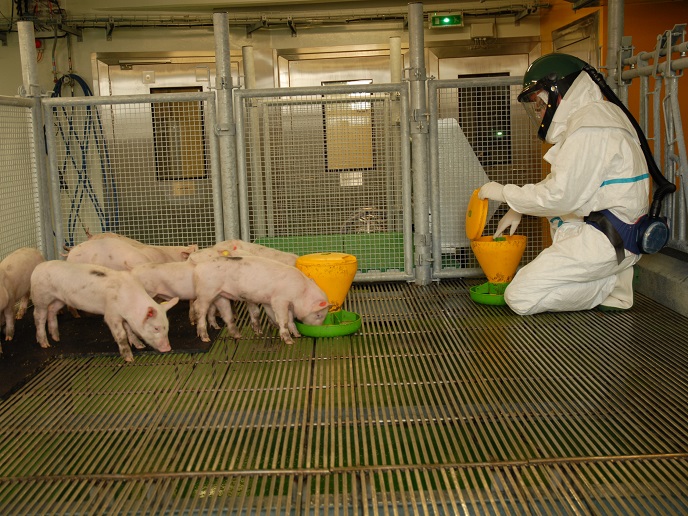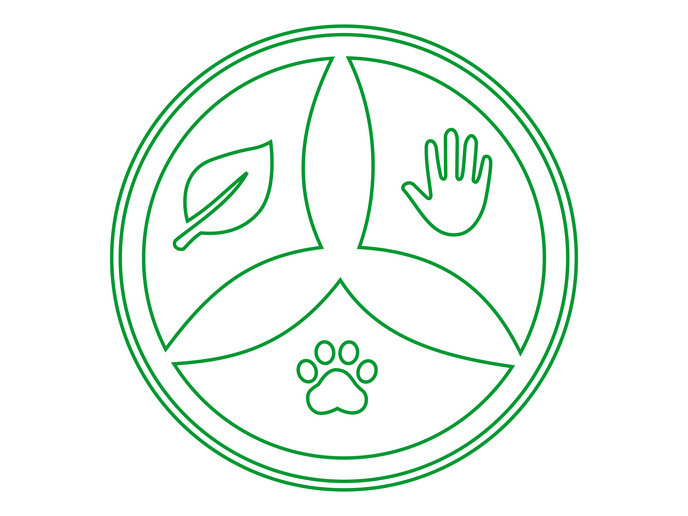Unleashing the research potential of high-containment animal facilities
The current pandemic has confirmed what scientists have long known. Accelerating the pace of research and knowledge acquisition on high-risk pathogens – highly infectious, highly pathogenic or both – is fundamental to our security. Uncontrolled infectious disease outbreaks have a global impact on lives, livelihoods, economies and healthcare systems. Understanding the workings of these pathogens is critical to prevention and containment of disease spread. However, exactly because these pathogens are high risk, they must be studied in specialised high-containment facilities, of which there are a relatively limited number globally. The EU-funded VetBioNet(opens in new window) project has established a multidisciplinary network to reinforce cooperation among Europe’s leading high-containment animal facilities, enhance technical capacities and services and offer free-of-charge access.
Unparalleled high-containment animal facilities
VetBioNet has assembled the majority of European research organisations with high-containment animal facilities as well as four partners in Africa, North America and Australia to conduct infectious disease research in terrestrial and aquatic animals. The network boasts some of the most costly and technically complicated facilities, those used for infection experiments with large animals (livestock). “These high-containment farmed animal facilities are rare – there are probably no more than a few dozen globally – and their availability for transnational access users is a unique selling feature of the VetBioNet project,” notes Sascha Trapp of the French National Research Institute for Agriculture, Food and Environment(opens in new window) (INRAE) and VetBioNet coordinator.
New tools and research on zoonotic and epizootic diseases
VetBioNet research covers important animal diseases that cannot be transmitted to humans like African swine fever and those that can (zoonotic diseases) like COVID-19 and avian influenza, including epizootic diseases (epidemic disease outbreaks in animal populations). The joint research activities of the consortium have delivered many disease models, protocols and monitoring technologies to accelerate understanding of these diseases. The many animal and alternative models include the first model for airborne SARS-CoV-2 infections in ferrets. New genetics tools and protocols to increase understanding of infection and immunity in livestock harness transcriptomics, high-throughput genotyping, and next-generation sequencing protocols. Sensor technologies or protocols will enable monitoring of physiological parameters and behaviour in livestock, laboratory animals and fish to improve the ethical and technological standards in animal research and support prevention and treatment. The facilities have been in great demand by external users. As of June 2022, they featured 51 transnational access user projects representing 21 different countries (including 6 non-European ones) and a mix of universities, public research entities and SMEs.
From SARS-CoV-2 today to tomorrow’s epidemic infectious diseases
VetBioNet has played a significant role in addressing COVID-19. Marie-Isabelle Thoulouze of INRAE and VetBioNet deputy coordinator explains: “Several VetBioNet partners were studying zoonotic coronaviruses as part of the VetBioNet activities prior to the pandemic. They responded rapidly and effectively, gaining important insights into animal susceptibility and the risks to humans.” Trapp adds that “laboratory animal models for SARS-CoV-2 infection studies, including preclinical efficacy studies, are available today at all VetBioNet high-containment animal facilities”. The VetBioNet consortium is operating at the forefront of the European research response to zoonotic and epizootic disease threats. The network is now one of the 17 life science research infrastructures in the largest and most diverse research- and service-providing instrument to study infectious diseases in Europe, the ISIDORe(opens in new window) project. VetBioNet will help ISIDORe enhance Europe’s capacity for controlling (re)emerging and epidemic infectious diseases.







